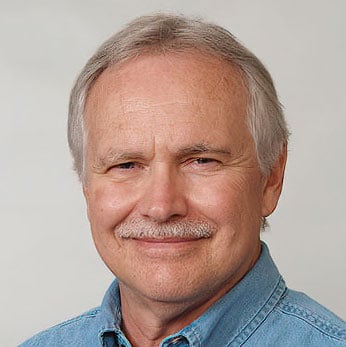The following tip is from the ISA book by Greg McMillan and Hunter Vegas titled 101 Tips for a Successful Automation Career, inspired by the ISA Mentor Program. This is Tip #57, and was written by Greg.
When I started my career, I could pretty much execute the entire automation system design from my desk using company standards, company specification forms, extensive vendor catalogs, and access to a host of company experts. I had the benefit of an eight-week internal training program on instrumentation and controllers. Now the mentors are gone, most of the expertise resides with the supplier, companies do not have time to update and maintain standards, and company technical training programs are extinct. You can’t do it all alone. You need to be able to work with people to cover all the bases including distributed control system (DCS) configuration, operator interface design, smart instrumentation diagnostics, variable frequency drives, tuning software, asset management systems, data historians, networks, busses, wireless gateways and devices, and electrical distribution systems.
People skills have always been important, but now that the days of working individually are gone you need to be team player. Applying Tip #51 and Tip #52, you need to be able to communicate and make people want to work with you.

You need to be a team player because just as it is in sports, the accomplishments of the team are more important than individual accomplishments. The team includes the supplier of products and the services. Concentrate on your role and see the bigger picture. Do not let your actions disrupt the design and implementation process. The DCS configuration engineer, electrical and instrument engineer, Information Technology (IT) person, control panel graphics designer, piping designer, P&ID drawing designer, mechanical engineer, process engineer, research scientist (particularly for biopharmaceutical processes), operator supervisor, supplier, and plant representative all need to understand and meet each other’s needs. You have to allocate your time so that you do not hold up someone else.
For people to be able to depend on you, you must make reasonable, but firm, commitments. The worst thing you can say is “I think I can do it” or “I can do it, if I have time.” Be specific as to your own needs in meeting it, and then make a decisive commitment.
Less obvious is the need to be supportive of others and to acknowledge all achievements as a team effort - even if you successfully accomplished a task by yourself. If you implement a great idea, personally thank the team members even when their contribution is not obvious. In memos, reports, articles, papers, and conversations, acknowledge the contributions of others. Avoid trash talk and doing celebration dances in the control room, pointing to trend displays and saying, “Uh huh, that’s me.”
Concept: Successful implementation of an automation system requires myriad skills and is a team effort. You win or lose as a team. Egos have to take a back seat.
Details: Make sure you are making the most of the skills of team members and team members are making the most of your skills. When something goes well, thank and recognize (in writing) all involved. When things go wrong, don’t look for someone to blame or for an excuse, but focus on solving the problem together. Make commitments without vague qualifications. If conditions change, immediately update the commitment without complaint. Use email and websites to keep team members updated on current problems, solutions, decisions, schedule, and cost. Use meetings judiciously. For process control improvement, consider the methodology described in the Control Talk column The Human Factor. Develop a quantitative assessment of the benefits by working with individuals from process technology and operations. Use this opportunity sizing and a process review in a structured concise meeting with process control experts to find opportunities.
Watch-Outs: Don’t use email to deal with mistakes or resolve disagreements. Email rapidly escalates misunderstandings and bad feelings for reasons that could be a book in itself. Meetings may take up too much of a team’s time. Meetings can get conversations started and get team members on the same page, but detailed guidance and solutions are hard to achieve in a meeting atmosphere. A runaway condition can develop in which meetings take up too much of a team’s time, resulting in more meetings on why the team is behind schedule, which in turn takes up more time that is needed for actual work. The result is often that the team makes mistakes and misses completion dates. Studies have found that brainstorming meetings are less effective than they were once thought to be and that successful innovation requires a lot of in-depth personal effort and perseverance. Hans Baumann, founder of the control valve company H.D. Baumann Assoc., Ltd., interviewed in the Control Talk column Control Valve Innovations, was proud that his company had no meeting rooms. Baumann, a control valve authority, is author of Fluid Mechanics of Control Valves: How Valves Control Your Process.
Exceptions: If a team member is too disruptive, the person must be metaphorically sent back to the minor league or development league. If an idea is clearly wrong, the idea must be (diplomatically) rejected.
Insight: Sharing knowledge and recognition, individual effort, and having common goals are all essential for success.
Rule of Thumb: Work together on a one-on-one basis, and seek inspiration and recognition as a team.
About the Author
Gregory K. McMillan, CAP, is a retired Senior Fellow from Solutia/Monsanto where he worked in engineering technology on process control improvement. Greg was also an affiliate professor for Washington University in Saint Louis. Greg is an ISA Fellow and received the ISA Kermit Fischer Environmental Award for pH control in 1991, the Control magazine Engineer of the Year award for the process industry in 1994, was inducted into the Control magazine Process Automation Hall of Fame in 2001, was honored by InTech magazine in 2003 as one of the most influential innovators in automation, and received the ISA Life Achievement Award in 2010. Greg is the author of numerous books on process control, including Advances in Reactor Measurement and Control and Essentials of Modern Measurements and Final Elements in the Process Industry. Greg has been the monthly "Control Talk" columnist for Control magazine since 2002. Presently, Greg is a part time modeling and control consultant in Technology for Process Simulation for Emerson Automation Solutions specializing in the use of the virtual plant for exploring new opportunities. He spends most of his time writing, teaching and leading the ISA Mentor Program he founded in 2011.
Hunter Vegas, P.E., holds a B.S.E.E. degree from Tulane University and an M.B.A. from Wake Forest University. His job titles have included instrument engineer, production engineer, instrumentation group leader, principal automation engineer, and unit production manager. In 2001, he joined Avid Solutions, Inc., as an engineering manager and lead project engineer, where he works today. Hunter has executed nearly 2,000 instrumentation and control projects over his career, with budgets ranging from a few thousand to millions of dollars. He is proficient in field instrumentation sizing and selection, safety interlock design, electrical design, advanced control strategy, and numerous control system hardware and software platforms.




